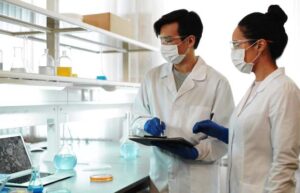Toxicokinetics is all about understanding how harmful substances enter our bodies, and how they spread, metabolize, and eventually leave. It’s a vital field of study, especially for New Jersey, which has a rich industrial history. Understanding toxicokinetics is essential to safeguard both our wonderful people and the environment.
A Simple Guide to Toxicokinetics in New Jersey
New Jersey has a mix of industries, and that means potential exposure to harmful stuff. From factories making chemicals to places where waste gets dumped, the state faces challenges in handling and lessening the impact of different toxic substances. To tackle these issues, we need to grasp the basics of toxicokinetics.


Understand The Basis of Toxicokinetics in New Jersey:
- Absorption: Let’s start with absorption. How does the body take in toxic substances? In New Jersey, workers and residents could come into contact with harmful chemicals through the air, water, or soil. Knowing how these substances get into the body is key for setting up safety measures and rules.
- Distribution: Once inside, toxic substances move through the blood to various organs and tissues. The pattern of this movement can change based on things like the chemical’s properties and the person’s health. In New Jersey, where people live close to industries, how these toxic substances spread matters a lot.
- Metabolism: Metabolism is about the body breaking down and changing toxic substances into less harmful ones. In New Jersey, where people have different backgrounds, their bodies might process and get rid of toxic stuff at different rates. We need to know these differences to plan healthcare and public health policies that fit everyone.
- Excretion: Finally, excretion is when the body gets rid of the transformed or unchanged toxic substances. Things like age, genes, and overall health can affect how fast this happens. In New Jersey, understanding these factors is important for figuring out the long-term effects of toxic exposure and for managing waste properly.
Conclusion:
In summary, understanding toxicokinetics in New Jersey is crucial for dealing with it. By looking at how substances get in, move around, get changed, and get out, we give people, healthcare folks, and policymakers the information they need to make smart choices. Stay in the know; stay safe.
